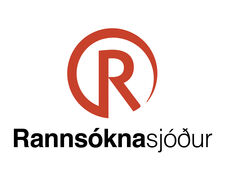Þróun vitsmuna: Rannsókn á samsvæða afbrigðum bleikju (Salvelinus alpinus) - verkefni lokið
Fréttatilkynning verkefnisstjóra
Vitsmunalegir þættir tengjast því hvernig einstaklingar takast á við umhverfi sitt. Til að skilja einstaklingsbreytileika í vitsmunum er nauðsynlegt að taka tillit til vist- og þróunarfræðilegra aðstæðna þeirrar tegundar sem á að rannsaka. Fiskar búa við fjölbreytt umhverfi. Þann breytileika má jafnvel finna innan sömu tegundar og hefur það leitt til þróunar mismunandi afbrigða, t.d. sjógöngu-, botn- og svifafbrigða bleikju (Salvelinus alpinus).
Markmið verkefnisins er að kanna hvernig umhverfi bleikju mótar vitsmuni hennar. Við göngum út frá þeirri tilgátu að stofnaaðskilnaður, þ.e. á stigli aðskilnaðar í þróun og vistfræði, hafi áhrif á vitsmuni. Við bárum saman vitsmunalega getu í tengslum við rými, þætti tengda persónuleika, uppbyggingu og genetíska þætti tengda stærð heilans hjá i) eldisbleikju sem alin er upp í einföldu eða flóknu umhverfi; ii) villtum bleikjuafbrigðum sem eru ólík hvað varðar stofnaaðskilnað. Aukin fjölbreytni umhverfis jók jafnaðaráræðni yfir langan tíma, breyttri atferlissvipgerð, aukinni feimni, minnkuðu rúmmál heila, juku vöxt auk jákvæðrar fylgni milli áræðni, lyktarlauka og vaxtarhraða. Í villtu stofnunum voru helstu niðurstöður þær að persónuleiki sýnir skýr merki um arfgengni sem háð er þróunarmun afbrigðanna. Vitsmunaeiginleikar eru háðir bæði arfgerð og umhverfi, þar sem námsgeta minnkar með aukinni sérhæfingu afbrigða og einstaklingar sem hlutu venjulega meðferð eru fljótari að læra. Sú aðferð sem fiskarnir notuðu til að átta sig og staðsetja var hreyfisvörun, óháð hvaða afbrigði var um að ræða og óháð meðhöndlun. Persónuleiki og vitsmunir voru tengdir þannig að djarfari fiskar lærðu hægar. Loks eru vitsmunaeiginlekar og persónueinkenni tengd formgerð heilans og einnig mismun á genatjáningu í heila milli afbrigða og á milli meðferða (auðgað eða venjulegt umhverfi). Þetta er fyrsta heildstæða rannsóknin á vitsmunum bleikju og hefur hún leitt til aukins skilnings á þróun vitsmuna og persónuleika. Niðurstöðurnar varpa einnig ljósi á velferð íslenska eldisbleikjustofnsins, sem hagnýta má í framtíðinni.
English:
Cognitive abilities are involved in the way individuals’ cope with their environment. To understand individual variation in cognition, it is necessary to consider the ecological and evolutionary context of the species being studied. Fishes experience a wide variety of environments, even within the same species leading to different morphs such as anadromous, benthic and pelagic morphs in the Artic charr (Salvenius alpinus, AC). The present study aimed to explore how environment of AC shapes their cognition and personality. We hypothesized that cognition can be impacted by the degree of divergence i.e. divergence along an evolutionary and ecologically gradient. We compared spatial cognition, personality traits, brain size, structure and molecular markers of i) domesticated aquaculture AC raised in enriched versus plain environment; ii) wild-caught AC morphs along a degree of divergence raised in enriched versus plain environments. Regarding the aquaculture strain, physical environmental enrichment induced boldness consistency across long term period, behavioural syndrome, shyer individuals, a lower brain volume, higher growth performance as well as a positive correlation between boldness and olfactory bulbs and growth rate. Regarding the wild populations, the main results are that personality trait is under strong and heritable genetic influence and driven by the evolutionary history of the morphs. Cognitive trait is influenced by both the genotype and the environment, with a learning efficiency decreasing with the degree of divergence of the morph, and individuals from the plain treatment being faster learners. The orientation strategy prioritized by the fish was the motor response regardless of the morph or the treatment. Personality and cognition were found to be linked together with bolder fish being slower learners. Finally, cognitive and personality traits are linked to brain morphology and to specific genes in in the brain differently expressed according to the morph, the treatment (enriched vs plain environment) and the part of the brain. This project was the first to study cognition processes in AC and assisted in understanding which brain structure may be important for cognition adaptations. It deepened our understanding of evolution of cognition and personality. The results also bring new insights into the welfare state of the Icelandic aquaculture strain of AC.
Information on how the results will be applied:
The results are of interest within the field of evolution of cognition and personality, within fish biology, and may have some application to aquaculture i.e., implementation of environmental enrichment to enhance welfare and performance at early stage of development, first step for investigating further the potential for selective breeding based on behavioural traits (objective of the next Rannís project 239536-051: Development of personality in the Arctic charr (Salvelinus alpinus)).
A list of the project’s outputs:
Publications in peer-reviewed journals :
-One article published so far linked to the aquaculture strain.
-One article in revision so far linked to the wild populations.
-One paper submitted linked to the wild populations.
-To come : 2 papers in preparation linked to the aquaculture strain, 4 for the wild population.
Communications in national/international conferences
-Posters (3)
-Oral communications (15)
-Dissemination in 5 different countries (Iceland, Scotland, Sweden, Japan, Saint-Pierre and Miquelon).
Students graduation
-PhD student: she will graduate in 2023.
-MSc students : 1 student fully involved in the project graduated in 2021, 12 did their final research project in relation with our project.
-Engineer students : 7 students did a an internship in relation with our project.
-BSc students : 7 students did their final research projects in relation with our project.
Heiti verkefnis: Þróun vitsmuna: Rannsókn á samsvæða afbrigðum bleikju (Salvelinus
alpinus)/ Evolution of cognition: a study of sympatric morphs of Arctic
charr (Salvenius alpinus)
Verkefnisstjóri: David Roger Ben Haim, Háskólanum á Hólum
Tegund styrks: Verkefnisstyrkur
Styrktímabil: 2019-2021
Fjárhæð styrks kr. 55.899.000
Tilvísunarnúmer Rannís: 195615


